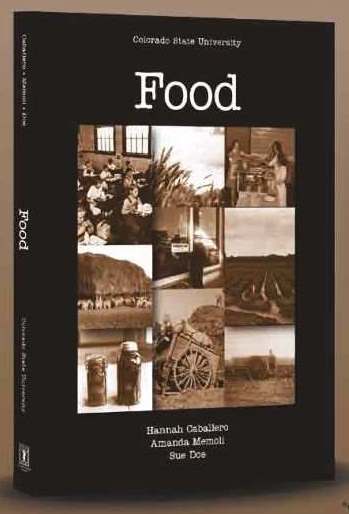The Composition Program and First Year Composition leadership is proud to announce the winners of the FOOD Writing Contest. Students of CO150 in 2016-17, who finished the course in good standing, were invited to submit their final researched essay or visual essay for the writing contest sponsored by Fountainhead Press. Many essays were submitted, all of which demonstrated the superb instruction of the students’ instructors and the strong writing skills being developed in our CO150 students. A committee of reviewers selected 1st, 2nd and 3rd place essays, and those essays will appear in the Fall 2018 Food-Energy-Water (FEW) Reader. Winners also received cash prizes.
Raven Pinto: 1st Place
Raven’s essay seeks to compel state policy-makers to adopt organic food waste bans. Raven says it best when she concludes, “the United States will reap the advantages of state-required food waste bans by way of increased food donations to hunger relief organizations; reducing the United States hunger rate as well as the waste rate. Additionally, environments will thrive in the increasing absence of the methane that is produced when large amounts of organic compost are dumped in landfills. Research and analytical observation has also concluded that food waste policies can lead to successful waste-diversion industries, increasing job availability for the American people.” Raven’s well-organized essay effectively discusses all of the above pieces of evidence with consistent sophisticated and professional voice.
Savanah Cheatham: 2nd Place
Savanah’s essay seeks to convince those who have considered adopting a plant-based diet to finally take the plunge. In her essay, she appeals to those readers who may be on the fence about plant-based diets by highlighting several ways in which a plant-based diet has been statistically tested and proven effective.. Savanah closes by saying that a plant-based diet will be “a huge step in contributing to a happier and healthier version of yourself.” Although using second person appeals and personal experience can be incredibly risky in our writing, Savanah is able to effectively use these strategies to communicate her purpose.
Jacob Brueckman: 3rd Place
Jacob tackles the “Havoc of High Sugar Diets” in his essay, focusing, especially, on the damage a high-sugar diet can have on America’s children. With this focus, he appeals directly to parents, seeking to convince them of not only the necessity to help kids today stay away from sugar, but also to seek education on food labeling in order to become more educated on how refined sugar is “hiding in not so obvious products.” Jacob addresses the exigency of the issue by synthesizing sources focused on childhood obesity before turning his attention to the importance of reading food labels in order to keep our future generations, America’s children, healthy and thriving. Jacob’s essay handles multiple layers of an issue, which is, itself, risky, but he does so effectively by keeping focused on his overall purpose.
